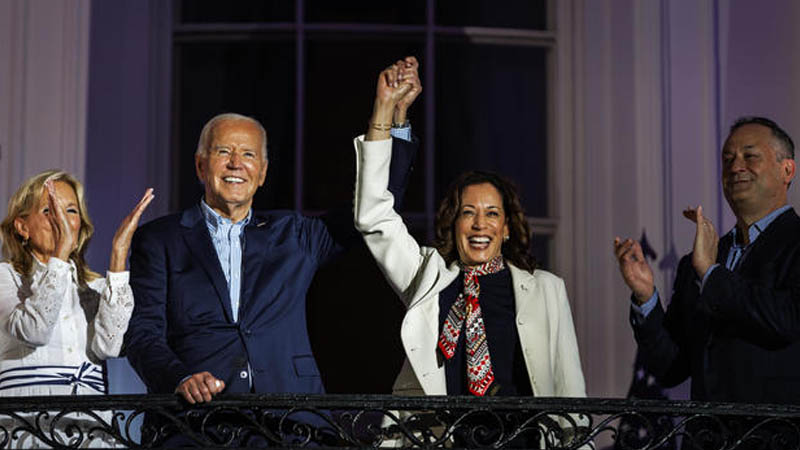President Joe Biden’s decision to drop out of the presidential race on Sunday sent shockwaves through the political world. Democratic power players have quickly rallied behind Vice President Kamala Harris. “I am honored to have the President’s endorsement and my intention is to earn and win this nomination,” Harris stated, told CBS News.
The Democratic Party now faces a significant choice in selecting a vice-presidential candidate for Harris. One intriguing name that has surfaced is former President Barack Obama. Selecting Obama would propel the party into uncharted waters, as no former president has ever taken the vice-presidential nomination.
The Constitution’s stance on this scenario, however, is complex. The 22nd Amendment states, “No person shall be elected to the office of the President more than twice,” leading to ambiguity regarding whether a twice-elected former president is constitutionally eligible to serve as vice president. The 12th Amendment further complicates matters, stating, “no person constitutionally ineligible to the office of President shall be eligible to that of Vice-President of the United States.”
Michael Dorf, a law professor at Cornell University, argued in a 2000 CNN column that a theoretical ticket of Al Gore and Bill Clinton would be constitutionally permissible. “Bill Clinton can serve as vice president because the 22nd Amendment’s prohibition on running for a third presidential term is not a condition of the office of president,” Dorf wrote. However, not all constitutional scholars agree. Gary Nordlinger, an adjunct professor at The George Washington University, told CBS affiliate WUSA9 in 2016 that a twice-elected former president is ineligible. “If anyone tried this,” Nordlinger said, “it would for sure end up at the Supreme Court. Because that’s who decides conflicts within the Constitution.”
Biden’s decision has prompted many Americans to revisit the Constitution, particularly the 22nd Amendment. Ratified in 1951 in response to Franklin D. Roosevelt’s unprecedented four-term presidency, the amendment was designed to prevent any president from serving more than two terms, thereby safeguarding against excessive executive power.
The Democratic nominee to replace Biden will be chosen during the Democratic National Convention (DNC) in Chicago, from August 19 to August 22. Since Biden cannot appoint a replacement, his delegates will determine the nominee at the convention.
As the Democratic Party navigates this unexpected turn of events, the focus will be on maintaining unity and preparing for a challenging election cycle. Harris, with Biden’s endorsement, stands poised to lead the party, but the selection of her running mate remains a crucial decision that could shape the campaign’s dynamics.
The political landscape is bracing for potential legal battles and intense discussions over constitutional interpretations. As the DNC approaches, all eyes will be on Chicago, where the future direction of the Democratic Party will be determined.


